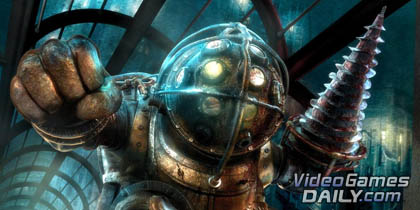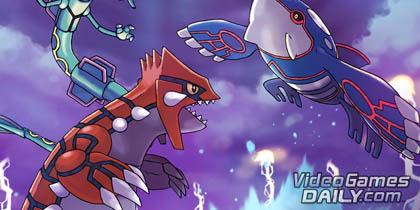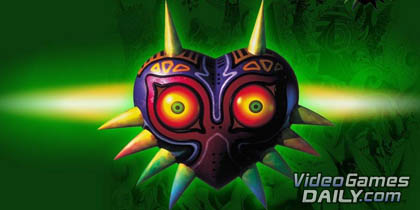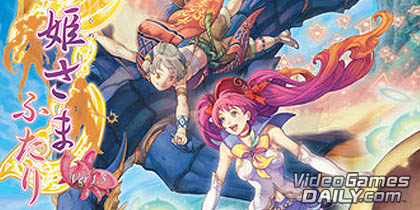
The end of 2009 also marks the end of the decade. Compiling a list of the best games from 2000-2009 isn’t a particularly easy task, and everyone’s bound to disagree with parts of it. But we had fun making it, and came up with a final selection of 65 games (or game series), split among five of the Video Games Daily editorial staff. Enjoy!

![]()
BioShock
2007

It is perhaps one of my principal regrets in life that I never got to play System Shock 2, though even if I had I can’t imagine Ken Levine’s steampunk successor to the cyberpunk classic would have had any less impact on me. The game’s flaws are many – the tiny array of enemies, the lack of variety in the plasmids and the dreadfully misconceived vita chambers to name a few, but I struggle to recall a more flawlessly executed game world than Rapture. Andrew Ryan’s suffocating dystopia is beautiful, yet horrific; touching, yet haunting. The world so alive with vivid detail, it tells you more than a thousand audio diaries ever could. Residents such as the psychopathic artisan Sander Cohen or the redemption-seeking humanitarian Bridgette Tenenbaum were the perfect inhabitants for this bleak world, not forgetting of course the iconic Big Daddy/Little Sister combo. Its crowning achievement however was in its mature, thought-provoking story, so layered that you could hand-pick any number of plot strings to write an essay on. The tale of Ryan’s high-minded dogmatic idealism failing to address the needs of the common man; an examination of free will in video games; a social commentary on stem cell research – take your pick. It may not have offered the kind of meaningful ethical choices it aspired to, but to paraphrase Rapture’s megalomaniacal architect: “A man’s reach should exceed his grasp.” You cannot fault 2K Boston’s ambition.
Further Reading: Review
![]()
Pokémon Ruby/Sapphire
2003

It’s a crazy mixed up world where the second best selling video game franchise of all time is perhaps an unexpected choice for a game of the decade, but the Pokémon series is used to hiding its complexity under the family-friendly veneer of childish marketing. Essentially a game of chess with 386 editable pieces, Pokémon’s multiplayer component is a constantly evolving strategic masterpiece that only begins when you’ve mopped the floor with the elite four. While Red and Blue had the greatest impact on popular culture, Ruby/Sapphire blew the game open – at high-level play the original series consisted of a pool of around 10-20 Pokémon with limited standard move sets while Ruby/Sapphire balanced the game in favour of diversity, creativity and intelligent planning. Similar to Warcraft in its ability to decimate hundreds of hours of your life, Pokémon’s depth is destined to be appreciated by less than 5% of the people that will ever play it, but I’m sure the 180+ million cumulative sales make that an easy cross to bear.
![]()
The Legend of Zelda: Majora’s Mask
2000

Compiling a game of the decade feature without a Zelda title is frankly unfeasible, but I had to delve back deeper into the decade than any other occasion to find Link’s finest post-millennial adventure. While Wind Waker won the plaudits for its courageous change in art direction, Majora’s Mask experimented with the Zelda formula so drastically its brilliance is still misunderstood and unequalled to this day. Majora takes Ocarina’s lazy afternoons fishing in the Hyrule sunset and pumps them full of urgency, giving you three days to prevent a looming lunar apocalypse with only a Groundhog Day-style time-jumping mechanic to aid you. An attentive mind was needed to plan your three days efficiently, requiring the kind of forethought and economy not yet seen in a Zelda game. As each day passed the land of Termina became more melancholic, with Link powerless to prevent the inevitable – only delay it. This was a more mature Zelda both in theme and design, boasting some of the most mind-bendingly brilliant dungeon design in the series. As a sequel to “the greatest game of all-time” this should have been a disappointment, but instead was a revelation and a masterpiece.
![]()
Mushihimesama Futari
2006-2009

Please excuse me for not going with the high-concept games media darling Ikaruga, but I thought it only right to acknowledge the true masters of the genre; Cave. Any one example from their distinguished body of work could have represented gaming’s oldest genre this decade, from the sadistically punishing Ketsui to the techno-pumping steampunk bullet-slowing ESPGaluda, but 2006′s Mushihimesama Futari covers the most bases so I’m going with that. The game features three modes – Original, Maniac and Ultra – the first of which is only suitable for the extremely skilled, the second of which shunts around so many bullets it will reduce most people to tears and the third of which is designed almost exclusively as an in-joke between the supreme elite of Japanese arcade gamers and Cave’s malicious and vindictive designers. Original and Maniac are far more subtly different than simply easy and hard with Original’s faster but fewer bullets appealing to the more old-school inclined and Maniac’s hypnotic bullet hell patterns and more complex scoring satisfying the bullet hungry. It is dynamic enough to reward creative play and rich enough with complexity to keep players coming back for years. The miraculous region-free, feature-heavy 360 port is just the icing on the cake.







 Satoru Iwata Video Interview - the late Nintendo president spoke with Kikizo in 2004 as 'Nintendo Revolution' loomed.
Satoru Iwata Video Interview - the late Nintendo president spoke with Kikizo in 2004 as 'Nintendo Revolution' loomed. Kaz Hirai Video Interview - the first of Kikizo's interviews with the man who went on to become global head of Sony.
Kaz Hirai Video Interview - the first of Kikizo's interviews with the man who went on to become global head of Sony. Ed Fries Video Interview - one of Xbox's founders discusses an epic journey from Excel to Xbox.
Ed Fries Video Interview - one of Xbox's founders discusses an epic journey from Excel to Xbox. Yu Suzuki, the Kikizo Interview - we spend time with one of gaming's most revered creators.
Yu Suzuki, the Kikizo Interview - we spend time with one of gaming's most revered creators. Tetris - The Making of an Icon: Alexey Pajitnov and Henk Rogers reveal the fascinating story behind Tetris
Tetris - The Making of an Icon: Alexey Pajitnov and Henk Rogers reveal the fascinating story behind Tetris Rare founders, Chris and Tim Stamper - their only interview? Genuinely 'rare' sit down with founders of the legendary studio.
Rare founders, Chris and Tim Stamper - their only interview? Genuinely 'rare' sit down with founders of the legendary studio. The History of First-Person Shooters - a retrospective, from Maze War to Modern Warfare
The History of First-Person Shooters - a retrospective, from Maze War to Modern Warfare